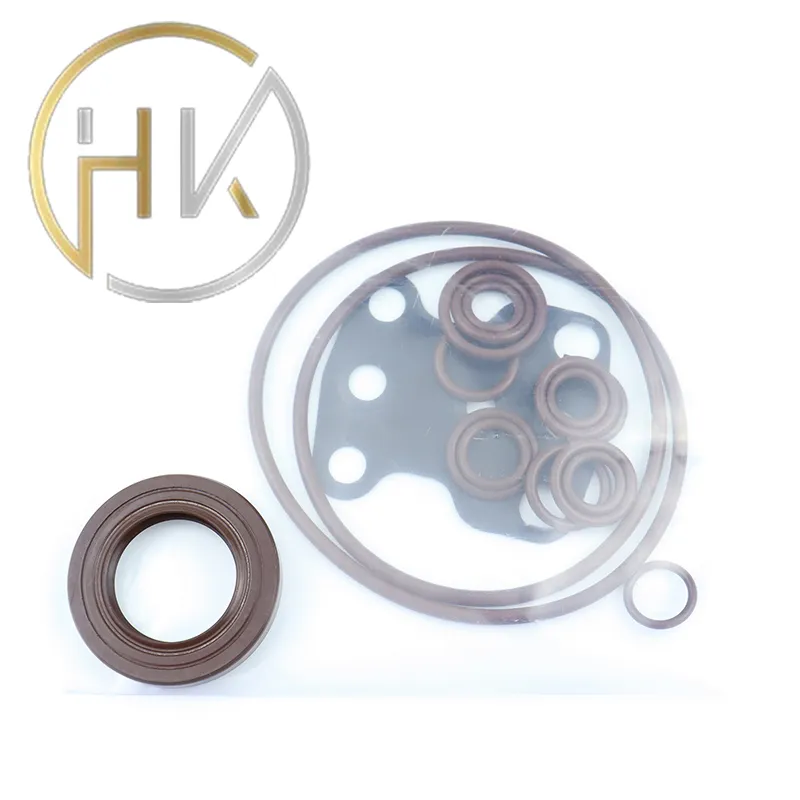Aug . 13, 2024 22:11 Back to list
Understanding Wheel Oil Seals Their Importance and Maintenance for Optimal Vehicle Performance
Understanding Wheel Oil Seals Importance and Applications
Wheel oil seals play a crucial role in the functionality and performance of various types of vehicles and machinery. These seals are designed to prevent the leakage of lubricants, such as oil or grease, from the wheel assembly while also keeping contaminants like dirt, water, and debris out. In this article, we will delve into the construction, function, and significance of wheel oil seals, as well as their applications in various industries.
Construction and Design
Wheel oil seals are typically made from durable materials such as rubber, polyurethane, or specialty plastic compounds. The choice of material is essential as it must withstand extreme temperatures and varying levels of pressure while maintaining its integrity over time. The design of a wheel oil seal includes a flexible lip that creates a tight fit against the rotating surface, effectively sealing the area where the wheel axle meets the hub.
The seal usually comprises two main components the sealing lip and the outer casing. The sealing lip is the critical part that contacts the axle or shaft, while the outer casing adheres to the housing of the wheel assembly. This design ensures that oil remains inside the assembly, lubricating essential components and reducing friction during operation.
Functionality
The primary function of wheel oil seals is to prevent the loss of lubricant from the wheel hub and to keep harmful contaminants from entering the assembly. When lubricants leak out, it can lead to increased friction, overheating, and eventual wear and tear of the components. This, in turn, can cause brake failure, reduced performance, and potentially serious safety hazards.
wheel oil seal

Moreover, the ingress of unwanted materials can cause corrosion and degradation of the internal parts, leading to costly repairs and maintenance. Thus, by effectively sealing the lubricant and keeping out contaminants, wheel oil seals enhance the longevity of the wheel assembly and improve overall vehicle performance.
Importance in Various Applications
Wheel oil seals are utilized in a wide range of applications, including automotive, heavy machinery, motorcycles, and even some industrial equipment. In the automotive sector, they are commonly found in cars, trucks, and buses, where they help maintain optimal functionality of the wheel bearings and brakes. In heavy machinery, where equipment is subjected to harsh environments, robust seals are vital for protecting hydraulic components and ensuring efficient operation.
In motorsports, maintaining integrity in oil sealing is crucial for performance, as even a small leak can lead to significant power loss or failure during competition. Likewise, in industrial applications, wheel oil seals play a critical role in the performance of conveyor systems, forklifts, and other machinery that requires rotating shafts and wheels.
Conclusion
In summary, wheel oil seals are a fundamental yet often overlooked component in many vehicles and machinery. They serve the dual purpose of retaining essential lubricants and preventing the ingress of harmful contaminants, playing a vital role in the safety and longevity of wheel assemblies. Understanding their function and importance can help vehicle owners and operators prioritize maintenance and ensure optimal performance. As technology progresses, the materials and designs of wheel oil seals will likely continue to evolve, further enhancing their effectiveness and reliability.
-
TCN Oil Seal Metal Ring Reinforcement for Heavy Machinery
NewsJul.25,2025
-
Rotary Lip Seal Spring-Loaded Design for High-Speed Applications
NewsJul.25,2025
-
Hydraulic Cylinder Seals Polyurethane Material for High-Impact Jobs
NewsJul.25,2025
-
High Pressure Oil Seal Polyurethane Coating Wear Resistance
NewsJul.25,2025
-
Dust Proof Seal Double Lip Design for Construction Equipment
NewsJul.25,2025
-
Hub Seal Polyurethane Wear Resistance in Agricultural Vehicles
NewsJul.25,2025
-
The Trans-formative Journey of Wheel Hub Oil Seals
NewsJun.06,2025
Products categories
















